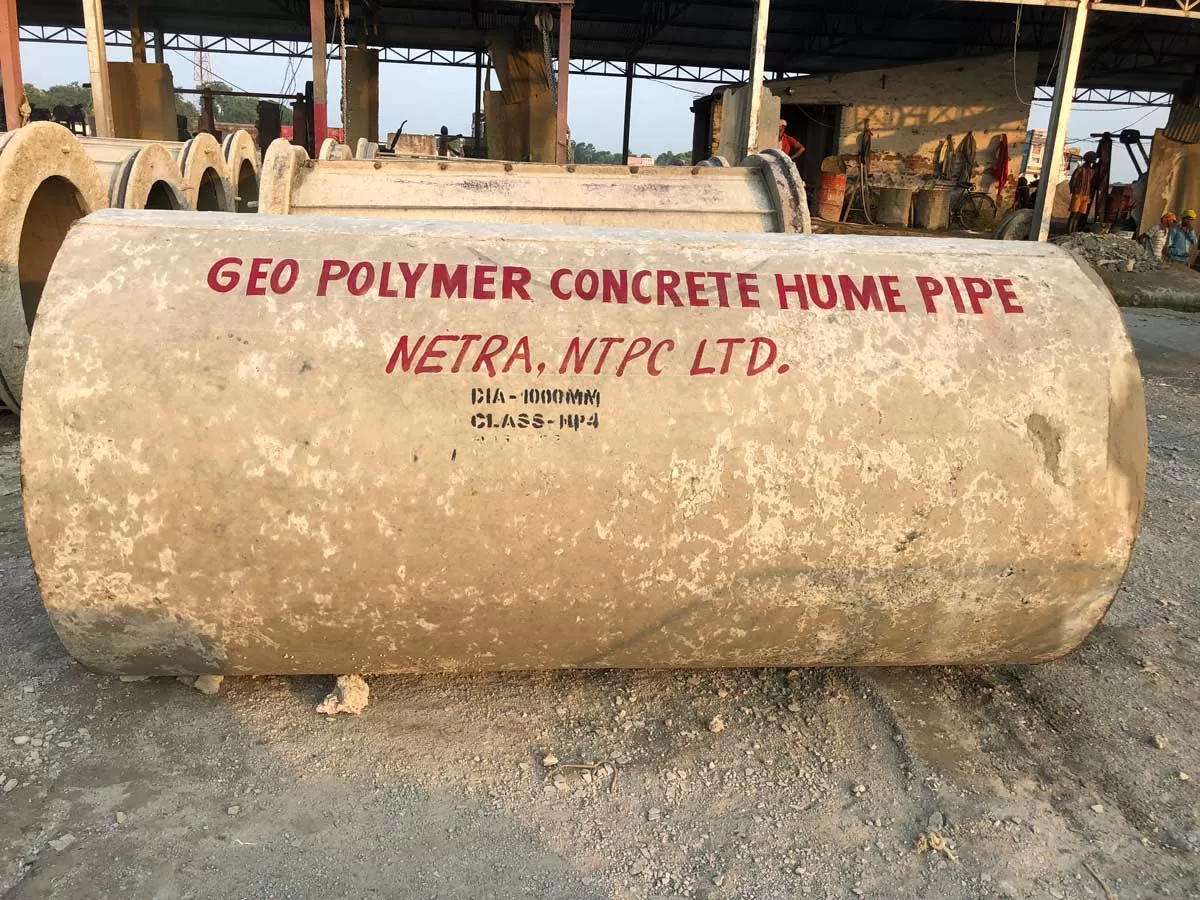A pioneering geopolymer road in Bihar was recently inaugurated by NTPC Kahalgaon. The first of its kind in the state constructed entirely without cement, the 2.9-km road marks a milestone for the company. It utilised 2,000 metric tonne (mt) of fly ash, a byproduct of power plants, and ground granulated blast furnace slag (GGBS) from steel plants, combined with chemicals such as sodium hydroxide and sodium silicate. This eco-friendly approach not only reduces greenhouse gas emissions but also promotes the effective utilisation of industrial waste and sustainable practices. More durable than conventional concrete roads, the road is expected to set a new standard for future infrastructure projects in the region. Geopolymer concrete can also be used for railway sleepers, electric power poles, cement mortar, marine structures and waste containments.
Technology at work
“The R&D wing of NTPC has developed prototype technology for geopolymer concrete roads, which utilise fly ash, GGBS, caustic soda, sodium silicate and other admixtures and are 100 per cent cement-free,” says Rajiv Satyakam, GM (Ash Tech and NI), NTPC Sipat. “The road has two layers of geopolymer concrete lean concrete (LC) of M10 strength and pavement quality concrete (PQC) of M40 strength. Around 1,100 mt of fly ash is used per km of road built for a width of 8.5 m. Geopolymer concrete has emerged as an important engineering material in recent times because of its ecological and sustainable nature. The other major highlights of this road are that it doesn’t require water for curing, has negligible CO2 emission compared to high CO2 emission in cement production and is ambient cured. Further, compressive strength can be achieved in seven days compared to water curing for 28 days for a normal concrete road. It has good durability in an aggressive environment compared to a conventional concrete road. Prototype technology has been demonstrated for M40 grade at NTPC Ramagundam (1.36 km), NTPC NETRA (2.2 km) and NTPC Kahalgaon (2.9 km), and is under construction at NTPC Sipat (18 km). Cost-wise, it is comparable to cement concrete rigid pavement.”
Realising its cost-effectiveness, environmental benefits and other structural properties, the Committee for New Materials and Techniques, Indian Roads Congress (IRC), New Delhi, under the Ministry of Road Transport and Highways (MoRTH), has also accredited NTPC for geopolymer concrete as a new construction material. The technology can also be utilised to manufacture products other than roads, such as paver blocks, Hume pipes, tetra pods and solar panel structures (See photos).
Advantages and challenges
“The use of geopolymers represents a sustainable alternative that increases the longevity of roads,” says Vivek Mittal, Director, Pushpanjali Mines and Minerals. “Considering the amount of infrastructure being built in India, we need to look at alternative ways to minimise the environmental impact by reducing dependency on water and chemicals while improving durability. The use of geopolymers will get us there.”
“By eliminating cement and utilising industrial by-products, this road helps repurpose waste that would otherwise contribute to environmental pollution,” says Sanjay Kumar Sinha, Founder and Managing Director, Chaitanya Projects Consultancy. “The fly ash and GGBS used would otherwise end up in landfills. Such roads are also considered more durable and potentially more sustainable than conventional concrete roads, offering better resistance to chemicals and extreme temperatures, which can increase the lifespan of the road and reduce maintenance needs. Traditional cement production is a significant contributor to global CO2 emissions, accounting for approximately 80 per cent of total emissions worldwide. By avoiding the use of clinker (the key ingredient in cement), geopolymer concrete dramatically reduces the associated carbon footprint. It is estimated that this geopolymer road has helped reduce emissions by up to 80 per cent compared to conventional cement-based roads.”
However, as he points out, one technical challenge with geopolymer concrete is the curing process. “Unlike cement concrete, which can be cured with water at ambient temperatures, geopolymer concrete often requires heat curing to achieve optimal strength. In some cases, this can be done at room temperature with additional curing methods but, typically, the concrete needs to be heated during the early stages of setting. This aspect must be carefully controlled to ensure that the desired strength and performance characteristics are achieved.”
Subodh Dixit, Former Executive Director, Shapoorji Pallonji, has a similar concern with regard to the requirement of high temperature for curing. “However, adding silica and steel fibre will help gain strength faster to some degree,” he says. Also, “geopolymer is twice more expensive, primarily due to the cost of sodium silicate and sodium hydroxide. Availability of fly ash and especially steel slag primarily in East India adds to the transportation costs for the rest of India.” He also points to the absence of a uniform code
of production.
The road ahead
That said, the construction of the geopolymer road is a significant step towards sustainable infrastructure. By repurposing industrial waste materials, the project not only addresses environmental concerns but also sets a precedent for greener construction practices. Such initiatives highlight a commitment to reducing pollution and advancing eco-friendly methods in the building sector, paving the way for future developments in sustainable engineering.
- R SRINIVASAN


















